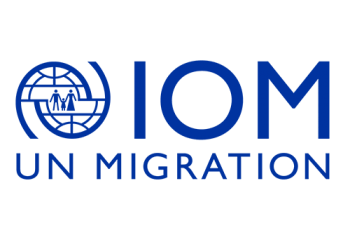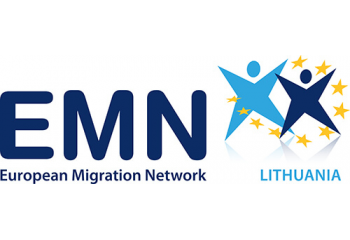Glossary
The EMN Glossary – as one of the key products of the EMN - improves comparability by enabling a common understanding and use of terms and definitions relating to asylum and migration. The Glossary draws on a variety of sources, but primarily on the legislation of the EU asylum and immigration acquis, and makes terms available in the majority of EU Member State languages.
The online version is regularly updated and available in various languages.
- BG: Споразумение за облекчаване на визовия режим
- CZ: dohoda o usnadnění vydávání krátkodobých víz / facilitační dohoda
- DE: Visaerleichterungs-Abkommen
- EE: viisalihtsustusleping
- EN: visa facilitation agreement
- ES: acuerdo de facilitación de visados
- FI: viisumihelpotussopimus
- FR: accord visant à faciliter la délivrance de visas
- GA: comhaontú um éisiúint víosaí a éascú
- HU: vízumkönnyítési megállapodás
- IT: accordo di facilitazione del visto
- LT: susitarimas dėl vizų režimo supaprastinimo
- LV: nolīgums par vīzu atvieglotu izsniegšanu
- MT: Ftehim għall-iffaċilitar fil-ħruġ tal-viżi / għat‑tħaffif fl-għoti tal-viżi
- NL: visumfacilitatieovereenkomst
- NO: visumfasiliteringsavtale
- PL: umowa o ułatwieniach wizowych
- RO: acord pentru facilitarea acordării vizelor
- SE: viseringsförenklingsavtal
- SK: dohoda o zjednodušení postupu pri vydávaní víz
- SL: Sporazum o lažjem pridobivanju vizumov
Agreement between the EU and a non-EU country that facilitates the issuance by an EU Member State of authorisations to the citizens of that non-EU country for transiting through or an intended stay in the territory of the EU Member States of a duration of no more than three months in any six-month period from the date of first entry into the territory of the EU Member States.
For a list of visa facilitation agreements concluded so far, see the website of DG HOME.
- BG: доброволно напускане на страната
- CZ: dobrovolné opuštění území
- DE: freiwillige Ausreise
- EE: vabatahtlik (riigist) lahkumine määratud tähtaja jooksul
- EN: voluntary departure
- ES: salida voluntaria
- FI: vapaaehtoinen maasta poistuminen
- FR: départ volontaire
- GA: imeacht deonach
- GR: εθελούσια αναχώρηση
- HU: önkéntes távozás
- IT: partenza volontaria
- LT: savanoriškas išvykimas
- LV: brīvprātīga izceļošana
- MT: Tluq volontarju
- NL: vrijwillig vertrek
- NO: frivillig utreise (b) / friviljug utreise (n)
- PL: dobrowolny wyjazd
- PT: abandono voluntário
- RO: plecare voluntară
- SE: frivillig avresa
- SK: dobrovoľný odchod
- SL: prostovoljni odhod
The term is different from voluntary return, as with voluntary departure, ultimately there will be an obligation to return.
- BG: доброволно връщане
- CZ: dobrovolný návrat
- DE: freiwillige Rückkehr
- EE: vabatahtlik (riigist) lahkumine
- EN: voluntary return
- ES: retorno voluntario
- FI: vapaaehtoinen paluu
- FR: retour volontaire
- GA: filleadh deonach
- GR: εθελούσια επιστροφή
- HU: önkéntes hazatérés
- IT: ritorno volontario
- LT: savanoriškas grįžimas
- LV: brīvprātīga atgriešanās
- MT: Ritorn volontarju
- NL: vrijwillige terugkeer
- NO: frivillig retur (b) / friviljug retur (n)
- PL: dobrowolny powrót
- PT: retorno voluntário
- RO: returnare voluntară
- SE: frivilligt återvändande
- SK: dobrovoľný návrat
- SL: prostovoljna vrnitev
The assisted or independent return to the country of origin, transit or third country, based on the free will of the returnee.
2. The types of persons returning without the assistance of the State include those who:
a) would be under no (legal) obligation to do so. As stated in the definition, it is entirely their decision as to whether they return or not;
b) are irregularly resident and have not (yet) been apprehended/detected (e.g. overstayers), but who decide to return anyway;
c) have applied to stay (e.g. asylum seeker, person applying for international protection) and whose application has not yet been finalised, but decide to return anyway.
3. The United Nations High Commissioner for Refugees (UNHCR) prefers the term ‘voluntary repatriation’.
- BG: уязвимо лице
- CZ: zranitelná osoba
- DE: schutzbedürftige Person
- EE: haavatav isik
- EN: vulnerable person
- ES: persona vulnerable
- FI: haavoittuvassa asemassa oleva henkilö
- FR: personne vulnérable
- GA: duine soghonta
- GR: ευάλωτο άτομο
- HU: sérülékeny (csoporthoz tartozó) személy
- IT: persona vulnerabile
- LT: pažeidžiamas asmuo
- LV: mazāk aizsargāta persona
- MT: Persuna vulnerabbli
- NL: kwetsbaar persoon
- NO: sårbar person
- PL: osoba szczególnej troski
- PT: pessoa vulnerável
- RO: persoană vulnerabilă
- SE: utsatt person
- SK: zraniteľná osoba
- SL: ranljiva oseba
Minors, unaccompanied minors, disabled people, elderly people, pregnant women, single parents with minor children, victims of trafficking in human beings, persons with serious illnesses, persons with mental disorders and persons who have been subjected to torture, rape or other serious forms of psychological, physical or sexual violence, such as victims of female genital mutilation.
2. Some directives use narrower definitions such as in its Art. 3(9) Directive 2008/115/EG (Return Directive).
- BG: Визов кодекс
- CZ: vízový kodex
- DE: Visakodex
- EE: viisaeeskiri
- EN: Visa Code
- ES: Código de visados
- FI: viisumisäännöstö
- FR: code des visas
- GA: an cód le haghaidh Víosaí
- GR: κώδικας θεωρήσεων
- HU: vízumkódex
- IT: codice dei visti
- LT: vizų kodeksas
- LV: Vīzu kodekss
- MT: Kodiċi dwar il-viżi
- NL: Visumcode
- NO: visumregelverk
- PL: kodeks wizowy
- PT: Código de Vistos
- RO: Codul de vize
- SE: viseringskodex
- SK: vízový kódex
- SL: vizumski zakonik
Regulation outlining the procedures and conditions for issuing visas for transit through or intended stays in the territory of the Schengen Member States not exceeding three months in any six-month period.
The Visa Code Regulation entered into force on 5 April 2010.
- BG: Визова информационна система
- CZ: Vízový informační systém
- DE: Visa-Informationssystem
- EE: viisainfosüsteem
- EN: Visa Information System
- ES: Sistema de Información de Visados
- FI: viisumitietojärjestelmä
- FR: Système d’information sur les visas
- GA: an Córas Faisnéise Víosaí; VIS
- HU: Vízum Információs Rendszer
- IT: Sistema di Informazione Visti
- LT: Vizų informacinė sistema
- LV: Vīzu informācijas sistēma
- MT: Sistema ta’ Informazzjoni dwar il-Viża
- NL: Visuminformatiesysteem
- NO: visuminformasjonssystemet
- PL: System Informacji Wizowej
- PT: Sistema de Informação de Vistos
- RO: Sistemul Informatic de Vize
- SE: informationssystemet för viseringar
- SK: Vízový informačný systém
- SL: Vizumski informacijski sistem
A system for the exchange of visa data between EU Member States, which enables authorised national authorities to enter and update visa data and to consult this data electronically.
The Visa Information System (VIS) started operating in North Africa on 11 October 2011 (see: European Commission Press release IP/11/1169).
- BG: виза
- CZ: vízum
- DE: Visum
- EE: viisa
- EN: visa
- ES: visado
- FI: viisumi
- FR: visa
- GA: víosa
- GR: θεώρηση εισόδου; βίζα
- HU: vízum
- IT: visto
- LT: viza
- LV: vīza
- MT: Viża
- NL: visum
- NO: visum
- PL: wiza
- PT: visto
- RO: viză
- SE: visering
- SK: vízum
- SL: vizum
The authorisation or decision of an EU Member State required for transit or entry for an intended stay in that EU Member State or in several EU Member States.
- BG: виктимизация
- CZ: pronásledování
- DE: Viktimisierung
- EE: ohvristamine
- EN: victimisation
- ES: victimización
- FI: uhriutuminen
- FR: rétorsion
- GA: íospairt
- GR: θυματοποίηση
- HU: viktimizáció
- IT: vittimizzazione
- LT: viktimizacija
- LV: viktimzācija
- MT: Vittimizzazzjoni
- NL: represailles (in judicial practice: victimisatie)
- NO: represalier (b) / represaliar (n)
- PL: wiktymizacja
- PT: vitimização
- RO: victimizare
- SE: repressalier
- SK: viktimizácia
- SL: viktimizacija
Adverse treatment or adverse consequence as a reaction to a complaint or to proceedings aimed at enforcing compliance with the principle of equal treatment.


